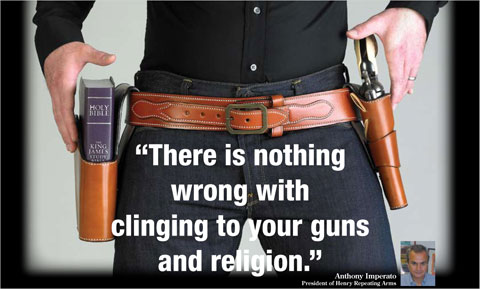The curious amalgamation of faith and weaponry provokes a thought-provoking juxtaposition in contemporary discourse: Can one truly embrace a spiritual path while simultaneously venerating instruments of violence? This inquiry delves into the Bahá’í teachings on the nature of worship and the increasing allure of materialism, as well as the seeming ascendancy of gun culture as a modern equivalent of divinity. This exploration not only scrutinizes the implications of such veneration but also reflects upon the broader decline of traditional religious paradigms.
Bahá’í teachings emphasize the intrinsic value of unity, peace, and the elevation of the human spirit through collective action. Central to this belief system is the divine principle of oneness, which transcends national, ethnic, and sectarian divides. However, in an era where gun culture proliferates and spiritual solace seems strangely intertwined with instruments of war, a palpable tension emerges. The question surfaces: how does one reconcile the tenets of mutual respect and love espoused by Bahá’í philosophy with an environment that idolizes firearms?
The theoretical reserve of conventional religion is rapidly transforming, with a disconcerting number of individuals gravitating towards the tangible, often violent symbols of power. Guns, in this context, assume dual roles as both protection and status symbols. Extremes of nationalism and aggression breed a subculture where firearms are not merely tools for defense but are imbued with a quasi-religious significance. The Bahá’í approach, rooted in the advocacy for peace and reconciliation, struggles against this tide.
The essence of Bahá’í teachings encourages adherents to cultivate a profound understanding of the sacred, which starkly contrasts with the fetishization of weaponry. Indeed, the religion posits that without the deep-seated appreciation for spiritual and ethical development, societies risk devolving into chaos. This sets the stage for an essential contemplation: Is our contemporary fixation on guns reflective of a spiritual void?
For Bahá’ís, the answer lies in the teachings of ‘Abdu’l-Bahá, the son of Bahá’u’lláh, who articulated the need for a moral framework predicated on love and justice. The rift between divinely inspired principles and the worship of violent means illustrates a significant downfall in the collective moral compass. The decline of traditional religious observance does not just erase communal bonds; it leaves a vacuum filled, at times, by fervent zeal for destructive instruments.
The drift towards materialism can further be elucidated through the lens of existentialist philosophy, as individuals seek to fend off feelings of insignificance in a chaotic world. The allure of firearms can be considered another manifestation of the search for identity and security amid uncertainty. However, this impulse neglects the Bahá’í call towards universal peace and the importance of nurturing the spiritual self.
This brings us to the paradox confronting modern believers: How do we elevate our spirits amidst the cacophony of gun worship and the materialistic ethos that permeates contemporary existence? Bahá’í teachings stress that the remedy lies in the fostering of a universal culture of peace defined by mutual respect and love. Yet, the stark reality remains that in many communities, guns symbolize power and liberation, overshadowing ideologies grounded in compassion.
The challenge extends beyond individual adherents; it invites a reevaluation of community strategies that empower the Bahá’í message. Engaging youth through education can serve as a conduit for dispelling the allure of gun culture while promoting spiritual and ethical development. Programs highlighting community service, moral education, and personal growth are fundamental in redirecting energies toward fostering humanity’s collective well-being.
Moreover, there is a salient need to create safe spaces for interfaith dialogue that recognizes the diversity of religious expression while emphasizing shared values of peace. Such discourse could prove essential in mitigating the grasp of violent symbolism, fostering an environment conducive to spiritual elevation. The coexistence of spiritual principles and the gun culture phenomenon demands nuanced conversations, which Bahá’ís are uniquely positioned to initiate given their commitment to unity and peace.
We must reflect upon the potential consequences if these teachings remain unheeded—what ramifications await a society continuously captivated by the glorification of violence? The Bahá’í Faith offers not just a response but a holistic worldview demanding accountability and ethical living. It calls for introspection concerning our values and priorities, challenging adherents to eschew veneration of guns and instead embrace the divine path toward love and unity.
Strikingly, the ideals set forth in Bahá’í teachings are not mere abstractions but actionable principles that can transform individual lives and entire communities. As adherents contend with the delicate interplay between faith and the materialistic allure of violence, the imperative emerges: to articulate and operationalize a vision of faith that celebrates peace over power.
In summary, the dialogue surrounding the worship of guns in contrast to Bahá’í teachings presents a formidable challenge. It invites followers to reassess the implications of modern culture and its impact on spirituality. By focusing on nurturing meaningful relationships grounded in love and mutual respect, the Bahá’í community can work towards a more compassionate world, paving the way for a resurgence of authentic religious experience amid the disillusionment of contemporary society.
